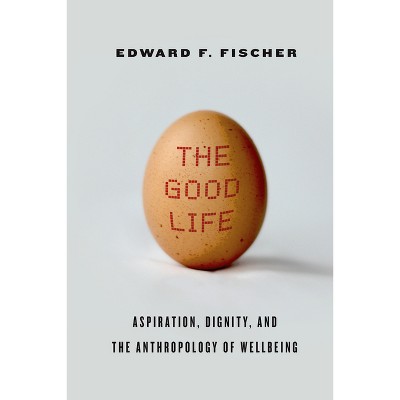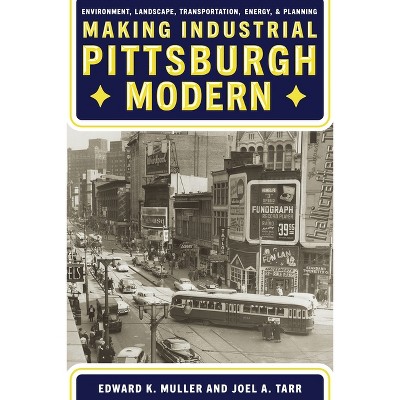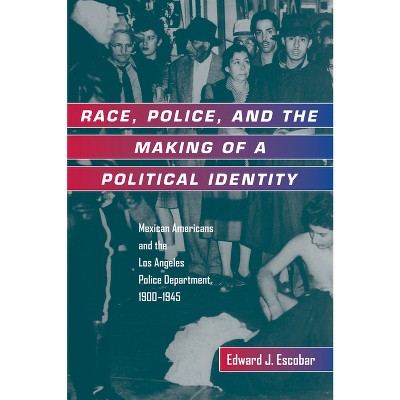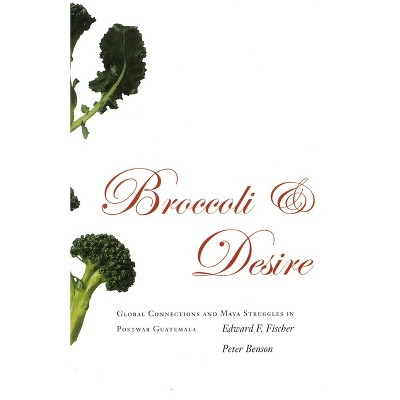$29.95 when purchased online
Target Online store #3991
About this item
Highlights
- An anthropologist uncovers how "great coffee" depends not just on taste, but also on a complex system of values worked out among farmers, roasters, and consumers.
- About the Author: Edward F. Fischer is Professor of Anthropology at Vanderbilt University, where he also directs the Institute for Coffee Studies.
- 306 Pages
- Social Science, Agriculture & Food
Description
Book Synopsis
An anthropologist uncovers how "great coffee" depends not just on taste, but also on a complex system of values worked out among farmers, roasters, and consumers. What justifies the steep prices commanded by small-batch, high-end Third Wave coffees? Making Better Coffee explores this question, looking at highland coffee farmers in Guatemala and their relationship to the trends that dictate what makes "great coffee." Traders stress material conditions of terroir and botany, but just as important are the social, moral, and political values that farmers, roasters, and consumers attach to the beans. In the late nineteenth century, Maya farmers were forced to work on the large plantations that colonized their ancestral lands. The international coffee market shifted in the 1990s, creating demand for high-altitude varietals--plants suited to the mountains where the Maya had been displaced. Edward F. Fischer connects the quest for quality among U.S. tastemakers to the lives and desires of Maya producers, showing how profits are made by artfully combining coffee's material and symbolic attributes. The result is a complex story of terroir and taste, quality and craft, justice and necessity, worth and value.From the Back Cover
"In Making Better Coffee, Edward F. Fischer offers a compelling and nuanced story about the entanglements of commodity markets, livelihoods, and desire. In this work, you will find vibrant ethnographic accounts of the sensory worlds of high-end coffee makers and connoisseurs, the complex coloniality of Guatemalan coffee oligarchs, and the struggles and resilience of Maya farmers. With characteristic care and insight, Fischer explores the (re)making of ideologies of quality and taste, and the powerful impacts these can have on everyday lives and relations."--María Elena García, author of Gastropolitics and the Specter of Race: Stories of Capital, Culture, and Coloniality in Peru "All of Fischer's talents are on display here. He deftly analyzes how moral aspiration takes shape in the exquisite qualities of Third Wave coffee. Traveling the global routes of coffee commodity chains, he reveals how markets and formations of race, class, and colonial power coalesce over generations and across communities in Guatemala. Making Better Coffee ultimately is a fascinating look at the power of story in economic life and the ways it produces marketable value, as well as possibilities of human dignity, for Mayans and others on the edge of the global economy."--Rudi Colloredo-Mansfeld, coauthor of Fast, Easy, and In Cash: Artisan Hardship and Hope in the Global Economy "This is the first in-depth scholarly exploration of how Third Wave coffee, with its emphasis on exclusivity, artisan production, and terroir, is influencing and in turn is influenced by coffee producers. Fischer provides an ethnographically rich exploration of the historical evolution of the Guatemalan coffee market, paying careful attention to the economic values and ideologies that have combined to shape contemporary conditions in coffee-growing communities."--Sarah Lyon, author of Coffee and Community: Maya Farmers and Fair-Trade Markets "Making Better Coffee presents a compelling new analytical framework for understanding global interdependencies and inequalities, one that will assuredly influence conversations across the social sciences. Through highly accessible storytelling, Fischer reveals how dynamics of power and processes of value creation shape human experience in the most mundane and profound ways--from our tastes in coffee to our very life chances."--Kedron Thomas, author of Regulating Style: Intellectual Property Law and the Business of Fashion in GuatemalaReview Quotes
"Fischer illuminates, on the heels of the transition from Folgers (First Wave) to Starbucks (Second Wave), the cultural and economic shifts that occurred from Peet's (Second Wave) to Blue Bottle Coffee (Third Wave). For this alone, the book is fun to read."-- "Administrative Science Quarterly"
"Making Better Coffee is a captivating and enlightening journey that delves into the intricate and multifaceted relationship between coffee production and its enjoyment by consumers. . . . The combination of Fischer's storytelling, research, and thoughtful analysis makes the text a compelling read for both coffee enthusiasts and anthropologists . . . Ultimately, Making Better Coffee is more than simply an account of creating value for coffee; it portrays coffee production not just in terms of the resulting commodity, but also as a pathway for community empowerment and the pursuit of a better future."-- "Exertions"
"A compelling case study of our current stage of capitalism in which controlling the means of production no longer guarantees maximum accumulation. . . . Fischer's work demonstrates that when we make better coffee, it is not necessarily better for everyone."-- "Gastronomica"
"Making Better Coffee offers an unabashedly practical look at real-world market spaces that impact the lives of millions of people around the world. . . . [L]earning more about and from an industry that is simultaneously functional and dysfunctional is more than desirable. It should be mandatory."-- "Administrative Science Quarterly"
"A captivating and enlightening journey that delves into the intricate and multifaceted relationship between coffee production and its enjoyment by consumers."-- "Exertions"
"Making Better Coffee is an engaging exploration of the value and values that surround coffee. . . .This book will be very useful for researchers, providing an excellent review of the literature. It could be used in graduate or advanced undergraduate classes."-- "FoodAnthropology"
"Fischer's insightful new book. . . .illustrates in great detail...how rarely that increased value benefits Maya farmers directly."-- "Economic Botanist"
About the Author
Edward F. Fischer is Professor of Anthropology at Vanderbilt University, where he also directs the Institute for Coffee Studies. He has authored and edited several books, most recently The Good Life: Aspiration, Dignity, and the Anthropology of Wellbeing.Dimensions (Overall): 8.9 Inches (H) x 5.9 Inches (W) x .9 Inches (D)
Weight: .84 Pounds
Suggested Age: 22 Years and Up
Number of Pages: 306
Genre: Social Science
Sub-Genre: Agriculture & Food
Publisher: University of California Press
Format: Paperback
Author: Edward F Fischer
Language: English
Street Date: September 6, 2022
TCIN: 86201594
UPC: 9780520386969
Item Number (DPCI): 247-11-4133
Origin: Made in the USA or Imported
If the item details above aren’t accurate or complete, we want to know about it.
Shipping details
Estimated ship dimensions: 0.9 inches length x 5.9 inches width x 8.9 inches height
Estimated ship weight: 0.84 pounds
We regret that this item cannot be shipped to PO Boxes.
This item cannot be shipped to the following locations: American Samoa (see also separate entry under AS), Guam (see also separate entry under GU), Northern Mariana Islands, Puerto Rico (see also separate entry under PR), United States Minor Outlying Islands, Virgin Islands, U.S., APO/FPO
Return details
This item can be returned to any Target store or Target.com.
This item must be returned within 90 days of the date it was purchased in store, shipped, delivered by a Shipt shopper, or made ready for pickup.
See the return policy for complete information.






